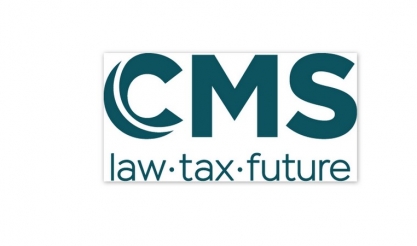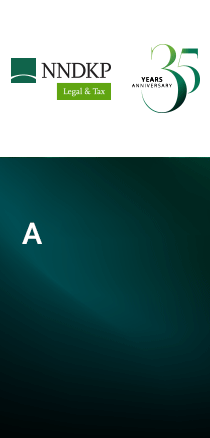
CMS România | Romania enacts new whistleblowing law
12 Ianuarie 2023 CMS România
For advice on setting up internal reporting systems in your Romania-based business that are compliant with this new law, contact your CMS client partner or local CMS experts: Cristina Popescu and Laura Grigore.

|
On 22 December 2022, Law No 361/2022 on the protection of whistleblowers in the public interest entered into force in Romania.This act transposes Directive (EU) 2019/1937 of the European Parliament and of the Council of 23 October 2019 on the protection of persons who report breaches of EU law.
The new whistleblowing law, first whistleblowing framework law in Romania applicable to both private and public sector, was adopted following an intensively scrutinised enactment process with the draft law subject to numerous amendments, comments and significant debates. The law establishes protection measures for persons working in public authorities and institutions, other public legal entities private legal entities, who report (verbally or in writing) irregularities or unlawful acts of which they became aware. The act is intended to be an instrument to encourage reporting and, consequently, the discovery and sanctioning of unlawful acts, as well as to protect those persons against possible negative professional or personal consequences by granting them the status of "whistleblower in the public interest".
The new whistleblowing law, first whistleblowing framework law in Romania applicable to both private and public sector, was adopted following an intensively scrutinised enactment process with the draft law subject to numerous amendments, comments and significant debates. The law establishes protection measures for persons working in public authorities and institutions, other public legal entities private legal entities, who report (verbally or in writing) irregularities or unlawful acts of which they became aware. The act is intended to be an instrument to encourage reporting and, consequently, the discovery and sanctioning of unlawful acts, as well as to protect those persons against possible negative professional or personal consequences by granting them the status of "whistleblower in the public interest".
Who can be named a whistleblower
A whistleblower can be any natural person who is a worker, self-employed person, shareholder or a person who is part of the administrative, management or supervisory body of a company, volunteers and trainees, or any person working under the supervision and management of the natural or legal person with whom a contract has been concluded. This includes subcontractors and suppliers.
Even if the law stipulates the obligation of the report to contain data such as name, surname, contact details or signature of the whistleblower, the report will also be analysed without this condition being met, to the extent that it contains sufficient indications of violations of the law.
Internal reporting
Authorities, public institutions, other public entities, irrespective of size and also private entities with at least 50 employees are required to identify or establish internal reporting channels and establish procedures for internal reporting and follow-up actions regarding violations of law. Companies operating in specific sectors (i.e. financial services, insurance) must fulfil the stated obligation regardless of the number of employees.
External reporting
The competent authorities to receive reports on violations of the law include public authorities and institutions, which have been mandated to receive and resolve reports relating to violations of the law, according to their field of competence, as well as The National Integrity Agency or other authorities and public institutions to which the Agency forwards reports for resolution.
Protection of a whistleblower who makes a public disclosure
Under the provisions of the law, the reporting person is protected against the eventual consequences triggered by a public disclosure when one of the following conditions have been met:
► the whistleblower first reported via the available (internal or external channels) and only after the respective timeframe for receiving a response has elapsed (respectively, three to six months since the report was received);
► the whistleblower had reasonable grounds to believe that the violation may constitute an imminent or obvious danger to the public interest or trigger the risk of irreparable damage or in the case of external reporting, there is a risk of retaliation or a low probability that the violation will be effectively remedied (upon considering the specific circumstances of the reporting).
Reporting evidence
All entities will keep records of all registered valid reports for a period of five years. After the expiration of the five-year storage period, the reports will be destroyed.
Sanctions
There are several penalties under the law that apply in whistleblowing cases, such as not complying with the obligations of implementing internal reporting channels, preventing by any means reporting to the person designated to receive and record the reports or by the person who is part of the compartment designated for this purpose within the legal entities and not complying with the confidentiality obligations in relations to the reports. Penalties range from the RON equivalent of EUR 400 to EUR 8,000. Knowingly reporting false information regarding violations of the law is qualified as offence and will be sanctioned with a fine ranging between EUR 500 and EUR 6,000, if the act was not committed under conditions considered a criminal offence.
The law also prohibits retaliation against whistleblowers in the public interest, such as any suspension of the individual employment contract or of the employment relationship, dismissal, modification of the employment contract, etc. In case of a breach of this obligation, a fine of up to EUR 8,000 will be issued.
Obligations for medium and large companies
Private entities having between 50 and 249 employees are under the obligation to identify or set forth internal reporting channels as of 17 December 2023. Hence, companies under this scope will need to assess and set up their own internal reporting channels. This will also involve assessing and recalibrating already existing whistleblowing channels, including from a reporting flow, data sharing with group companies, and implementing measures relevant from a personal data protection standpoint.
For advice on setting up internal reporting systems in your Romania-based business that are compliant with this new law, contact your CMS client partner or local CMS experts: Cristina Popescu and Laura Grigore.
| Publicitate pe BizLawyer? |
  |
| Articol 753 / 4534 | Următorul articol |
| Publicitate pe BizLawyer? |
 |

BREAKING NEWS
ESENTIAL
LegiTeam: Lawyer - Tax Controversy and Tax Litigation | Reff & Associates
Filip & Company a asistat ENGIE Romania în obținerea unui împrumut de 90 milioane de euro de la BERD. Tranzacție coordonată de Alexandru Bîrsan (managing partner) și Camelia Ianțuc (senior associate)
CMS | Join Our Team: Tax Consultant - Tax Department
Clifford Chance Badea a asistat Alpha Bank la finalizarea vânzării către Vista Bank România a societăților Alpha Leasing România IFN și Alpha Insurance Brokers. Ce avocați au fost implicați în proiect
GNP Guia Naghi și Partenerii obține la Înalta Curte anularea definitivă a unei decizii de sancționare emisă de Consiliul Concurenței împotriva unui important furnizor din sectorul alimentar | Dosarul s-a aflat la intersecția unor domenii juridice deosebit de tehnice – dreptul concurenței, dreptul administrativ și dreptul Uniunii Europene
Legal 500 - Central and Eastern Europe Awards 2025 | Clifford Chance, Filip & Company și Băncilă, Diaconu și Asociații sunt pe lista scurtă pentru titlul de ”Firma anului în România”. Horea Popescu (CMS), Ruxandra Bologa (NNDKP), Madalina Rachieru-Postolache (Clifford Chance) și Ana-Maria Baciu (Baciu Partners) printre candidații la titlul ”Romania Lawyer of the Year”. Alți 18 avocați români și 8 firme locale concurează la premiile regionale
Filip & Company a asistat Booster Capital în achiziția unei participații în Artesana cu o chipă de avocați coordonată de Alexandru Bîrsan (managing partner) și Andreea Bănică (counsel). RTPR a fost de partea vânzătorului ROCA Investments, iar Andronic & Partners a asistat Artesana şi pe fondatorii acesteia
Cei mai buni profesioniști în domeniul brevetelor, văzuți de ”IAM Patent 1000 - 2025” | NNDKP, ZRVP și Dincă & Speciac au cea mai bună poziționare, iar Mușat & Asociații și Baciu Partners sunt în prim plan. Ce firme au cei mai mulți avocați listați și ce spun clienții despre aceștia
RTPR obține, printr-o hotărâre definitivă, reducerea cu 85% a amenzii aplicate de Consiliul Concurenței unei agenții media, după un „roller coaster” juridic de 10 ani. Complexitatea speței, accentuată de necesitatea de a gestiona aspectele de natură tehnică referitoare la calculul veniturilor reale ale unei agenții media, cu excluderea sumelor refacturate clienților acesteia | Echipa asistă clientul și în cadrul procedurilor legale prin care să poată obține compensațiile care i se cuvin în contextul lipsirii acestuia de o sumă importantă de bani pe o perioadă îndelungată
Women in Business Law EMEA Awards 2025 | CMS câștigă titlul de de “Firma anului în România”. Un avocat in-house local, desemnat ”General Counsel of the Year” pentru regiune
Tranzacție rară pe piața românească | Cum au lucrat avocații Legal Ground în proiectul legat de achiziția unor obligațiuni ‘tokenizate’, înregistrate și tranzacționate prin sistemul blockchain. Mihai Dudoiu (Partener): ”Pe lângă aspectele comune unor proiecte de finanțare ‘clasice’, a fost necesară integrarea unei componente de fintech. Arhitectura juridică a trebuit adaptată unui cadru relativ nou și încă în formare din punct de vedere normativ”
Grupul Rodbun a accesat un credit sindicalizat de 17,3 mil. €, cu garanţie de stat. NNDKP și Legal Ground, consultanți juridici în această finanțare
Citeste pe SeeNews Digital Network
-
BizBanker
-
BizLeader
- in curand...
-
SeeNews
in curand...











 RSS
RSS














































